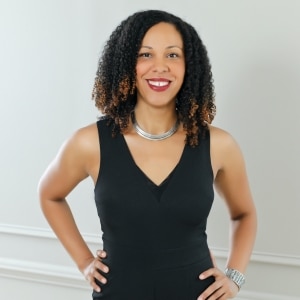Tell us a bit about yourself – what was your PhD about and where did you study?
I’m a neuroscientist and children’s book author. I received my PhD from Northwestern University. As a graduate student, I investigated how a class of receptors, called ionotropic glutamate receptors, were modulated by association with auxiliary subunits. I used patch-clamp electrophysiology and molecular biology techniques to tackle this question.
What do you do now? What did you decide to do next after gaining your PhD?
After graduate school, I did my postdoctoral training at Columbia University. There I studied the mechanisms that control excitability of peripheral sensory neurons, using a combination of electrophysiology, transgenic mouse models, pharmacology, and multiplex in situ hybridizations. In the fall of 2020, I will open my independent laboratory in the Department of Physiology and Membrane Biology at the University of California Davis. My lab will test hypotheses that lie at the interface of biophysics and sensory neuroscience to investigate molecular mechanisms underlying thermal sensations.
Has having a PhD helped in developing your career? If yes, what has been the biggest impact? If no, why do you think that is?
I have always wanted to pursue an academic science career. As such, a PhD was required. But in addition to allowing me to achieve my career goal, having a PhD has transformed the way I think. One of the most important things you learn while getting your PhD is how to ask the right questions, and come up with creative ways to answer them. Additionally, during my PhD, I was able to improve upon my writing skills. I harnessed this experience, and combined it with my love for science education, as a children’s book author. While a PhD is definitely not required for the latter, the training I received was directly applicable to my work in children’s literature.
What’s one piece of advice that you’d offer prospective students considering a PhD?
It is a tough, long road. But if you love what you are studying and are passionate about it, it is very much worth it. For me, it was truly a transformative experience and I am so glad I decided to undertake the challenge.
And what one thing would you suggest that new PhD graduates should do next?
This really depends upon your ultimate career goal. If you plan to stay in academia, you will likely need to do some type of postdoctoral training. That is something you should have in place about a year before finishing your PhD. If you don’t want to stay in academia, then hopefully you’ve had the opportunity to explore other career options and know what jobs you are interesting in pursuing. The beauty of a PhD, is that you have many, many career paths open to you!
Lastly, what’s your favourite memory from your time as a PhD student?
I loved living in Chicago during grad school. I can’t narrow it down to one specific memory, but I am so thankful for the mentors I had and the friends I made. It was such a transformative time for me, I feel lucky to have gone on the journey with such awesome people.
Thanks Theanne! How can our readers learn more and get in touch with you?
I am a children’s book author and my website is: www.theannegriffith.com and I can be found at @doctheagrif on Instagram, Twitter and Facebook! Additionally, I recently spoke to NPR about my work as a children’s book author, which can be found here.
A summary of all the links are as below:
Website | Instagram | Twitter | Facebook | NPR Interview

